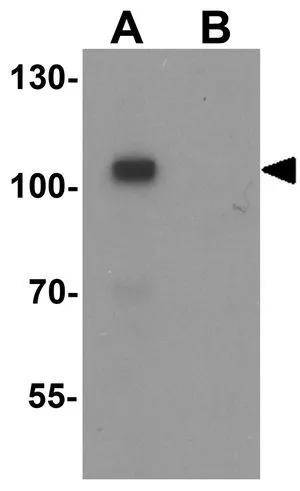
WB analysis of mouse brain tissue lysate in (A) the absence and (B) the presence of blocking peptide using GTX31858 CASK antibody. Working concentration : 1 μg/ml
CASK antibody
GTX31858
ApplicationsWestern Blot, ELISA, ImmunoHistoChemistry, ImmunoHistoChemistry Paraffin
Product group Antibodies
ReactivityHuman, Mouse, Rat
TargetCASK
Overview
- SupplierGeneTex
- Product NameCASK antibody
- Delivery Days Customer9
- Application Supplier NoteWB: 1 microg/mL. IHC-P: 20 microg/mL. *Optimal dilutions/concentrations should be determined by the researcher.Not tested in other applications.
- ApplicationsWestern Blot, ELISA, ImmunoHistoChemistry, ImmunoHistoChemistry Paraffin
- CertificationResearch Use Only
- ClonalityPolyclonal
- Concentration1 mg/ml
- ConjugateUnconjugated
- Gene ID8573
- Target nameCASK
- Target descriptioncalcium/calmodulin dependent serine protein kinase
- Target synonymsCAGH39, CAMGUK, CMG, FGS4, LIN2, MICPCH, MRXSNA, TNRC8, hCASK, peripheral plasma membrane protein CASK, calcium/calmodulin-dependent serin protein kinase, calcium/calmodulin-dependent serine protein kinase (MAGUK family), calcium/calmodulin-dependent serine protein kinase membrane-associated guanylate kinase, protein lin-2 homolog, trinucleotide repeat containing 8
- HostRabbit
- IsotypeIgG
- Protein IDO14936
- Protein NamePeripheral plasma membrane protein CASK
- Scientific DescriptionThis gene encodes a calcium/calmodulin-dependent serine protein kinase. The encoded protein is a MAGUK (membrane-associated guanylate kinase) protein family member. These proteins are scaffold proteins and the encoded protein is located at synapses in the brain. Mutations in this gene are associated with FG syndrome 4, mental retardation and microcephaly with pontine and cerebellar hypoplasia, and a form of X-linked mental retardation. Multiple transcript variants encoding different isoforms have been found for this gene.[provided by RefSeq, Mar 2010]
- ReactivityHuman, Mouse, Rat
- Storage Instruction-20°C or -80°C,2°C to 8°C
- UNSPSC12352203

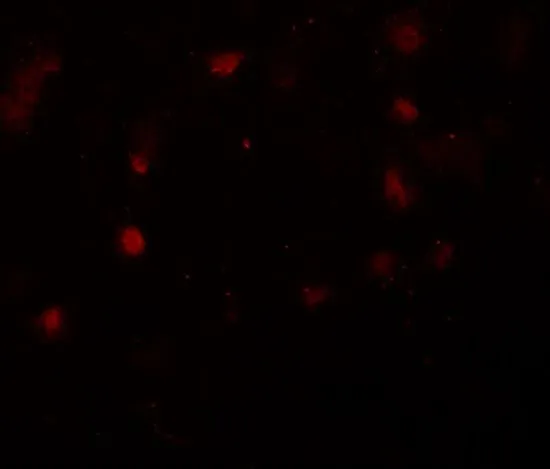
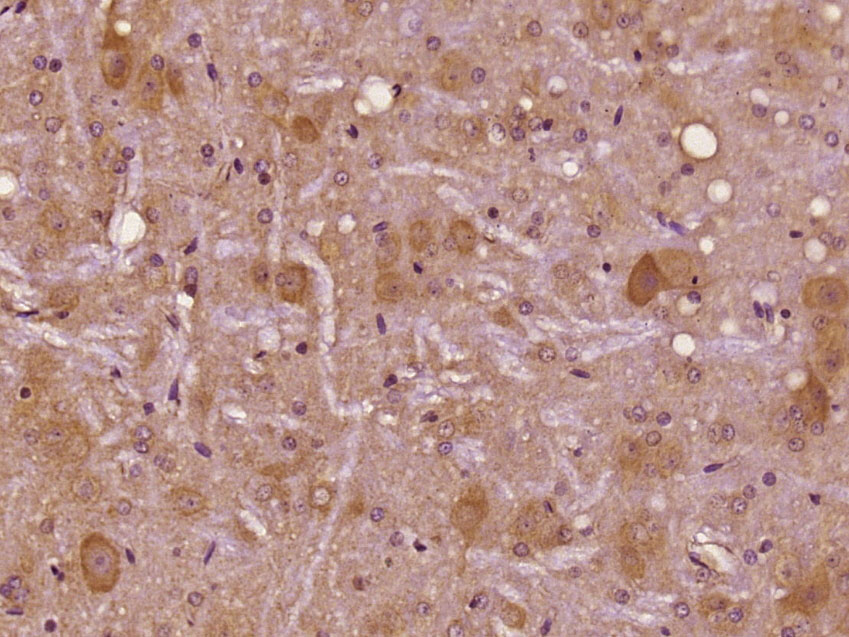

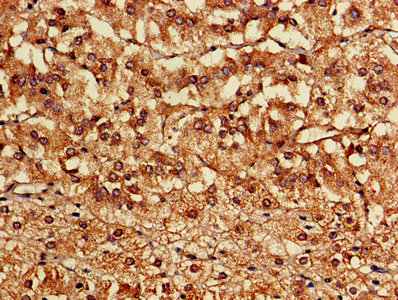
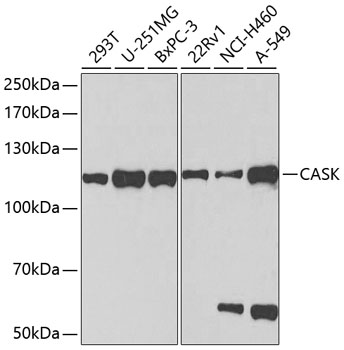
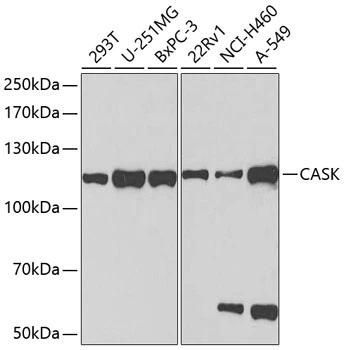
![Various tissue extracts (50 μg) were separated by 7.5% SDS-PAGE, and the membrane was blotted with CASK antibody [GT27] (GTX641106) diluted at 1:1000. The HRP-conjugated anti-mouse IgG antibody (GTX213111-01) was used to detect the primary antibody.](https://www.genetex.com/upload/website/prouct_img/normal/GTX641106/GTX641106_45551_20241011_WB_M_R_24101600_453.webp)
